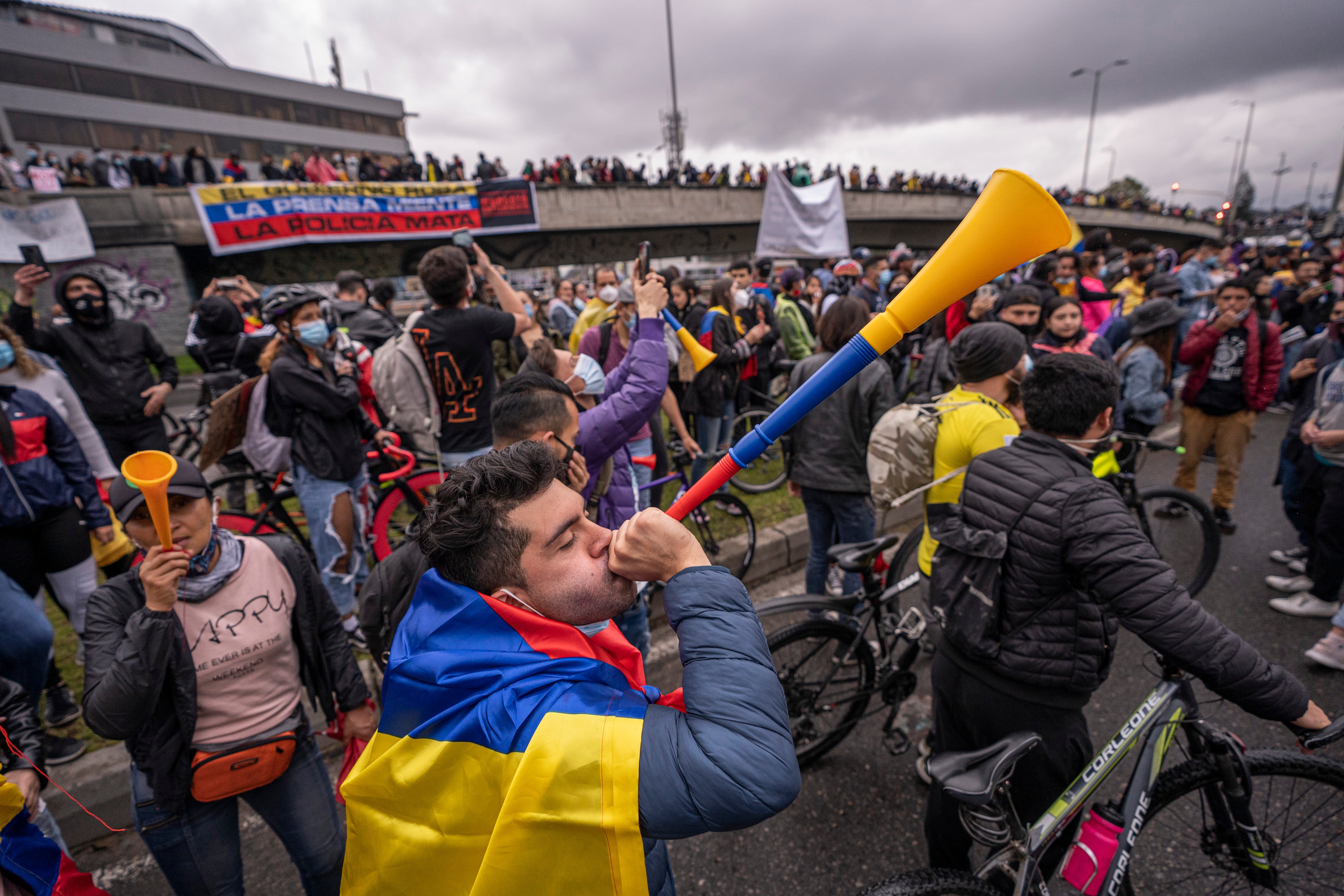Violent protests in Colombia over tax reform
A total of 24 people have died in the protests

Your support helps us to tell the story
From reproductive rights to climate change to Big Tech, The Independent is on the ground when the story is developing. Whether it's investigating the financials of Elon Musk's pro-Trump PAC or producing our latest documentary, 'The A Word', which shines a light on the American women fighting for reproductive rights, we know how important it is to parse out the facts from the messaging.
At such a critical moment in US history, we need reporters on the ground. Your donation allows us to keep sending journalists to speak to both sides of the story.
The Independent is trusted by Americans across the entire political spectrum. And unlike many other quality news outlets, we choose not to lock Americans out of our reporting and analysis with paywalls. We believe quality journalism should be available to everyone, paid for by those who can afford it.
Your support makes all the difference.Mass protests continue for the eighth day in Colombia, following two dozen deaths.
Demonstrations that initially began in opposition to a now-cancelled tax reform plan, have become progressively more violent with a total of 24 people - 23 civilians and one police officer - killed during the protests.
Protesters turned their attention from tax reforms to criticising President Ivan Duque’s administration, calling for an end to poverty and a stop to excessive use of violence by the police.
On Wednesday night tens of thousands of people marched through the capital city of Bogotá in the pouring rain.
Several hundred met in the historic Plaza Bolivar in a largely peaceful demonstration which was later cleared by riot police who implemented teargas and used flash bangs as the evening went on.
Earlier in the week, crowds attacked a number of police stations, setting one on fire and injuring five officers, according to city officials reportedThe Guardian. By the end of Wednesday, a total of 45 police stations were out of service with protestors also vandalising bus stations.
It appears that police violence has been linked to just under half of 24 deaths confirmed to have occurred during the unrest.
The national police have said they will investigate allegations of police brutality. Meanwhile, the defence minister has claimed that illegal armed groups and “terrorists” have been infiltrating protests with the intent of provoking violence.
President Iván Duque has appeared powerless to stop the unrest, although he has withdrawn his tax plan and ordered the military into several of the country’s major cities.
Human rights NGO Amnesty International analysed videos of the protests and say police have used lethal weapons against protesters across the South American country.
The southwestern city of Cali has become the epicentre of the protests with at least 11 people killed there in the last week.
The city’s mayor, Jorge Ivan Ospina, took to Twitter to call for peace saying: “No more blood in Cali.”
Elsewhere, the UN Office of the High Commissioner for Human Rights has urged calm ahead of further planned protests, as well as warning of police shootings.
A spokesperson, Marta Hurtado said in a statement: “We are deeply alarmed at developments in the city of Cali in Colombia overnight, where police opened fire on demonstrators protesting against tax reforms, reportedly killing and injuring a number of people.”
The EU too has called for peace, condemning the violence and urging security forces to avoid such heavy-handed response.
A year of coronavirus has taken its toll on the South American country, exacerbating pre-existing inequalities, as well as killing 75,000 people. In 2020, poverty worsened to affect 42.5 per cent of the population.
Join our commenting forum
Join thought-provoking conversations, follow other Independent readers and see their replies
Comments